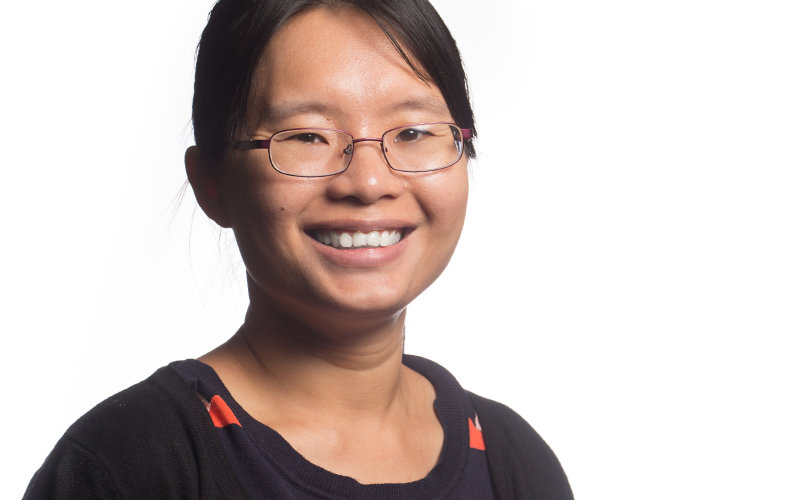
Siheng Su studied the development of functional nanomaterials — chemical substances or materials that are manufactured and used at a very small scale — for brain cancer therapy at Texas Tech University, where she earned her doctorate in mechanical engineering.
Su now brings her expertise in the biomedical field to Cal State Fullerton and the College of Engineering and Computer Science, which is developing a new program in biomedical engineering with a medical device emphasis.
Su, who joined the University this academic year as an assistant professor of mechanical engineering, also holds a bachelor’s degree in environmental science from Sun Yat-sen University in Guangzhou, China, and speaks Mandarin and Cantonese.
What is one thing you’d like others to know about your field?
When people think of mechanical engineering, they think the discipline is only about automobiles and machines. But actually, mechanical engineers also develop medical devices and functional biomaterials for disease diagnosis and therapy.
What inspired you to go into this field?
I chose this field because mechanical engineering provides advanced techniques to improve our health. In this area of study, I want to explore the possibilities of mechanical engineering in the biomedical field by integrating chemical and biological technologies. It’s fantastic to see how these technologies can improve people’s quality of life.
What are your research interests?
My research focuses on nanomaterials manufacturing — the interaction between nanomaterials and biological membranes, and the 3-D printing of artificial tissues and organs. In my research, biomaterials are manufactured, optimized and applied in disease detection, disease therapy and tissue engineering. My latest work explores injectable nature polymers (giant molecules such as protein) for tissue regeneration.
What do you hope students learn from your teaching?
I want my students to learn the fundamental knowledge found in a textbook, and also know how to think logically and apply what they learn in the classroom to solve real-world problems. In my class, practical examples are always emphasized. I also try to help students build their confidence so they can better prepare for their futures.